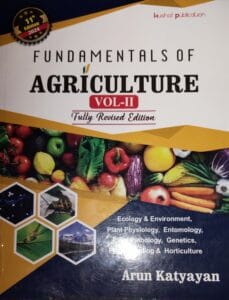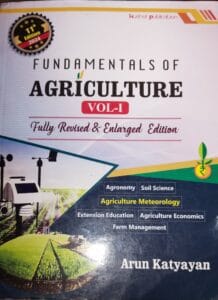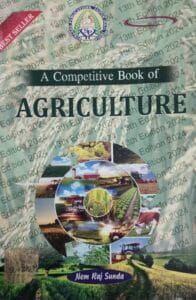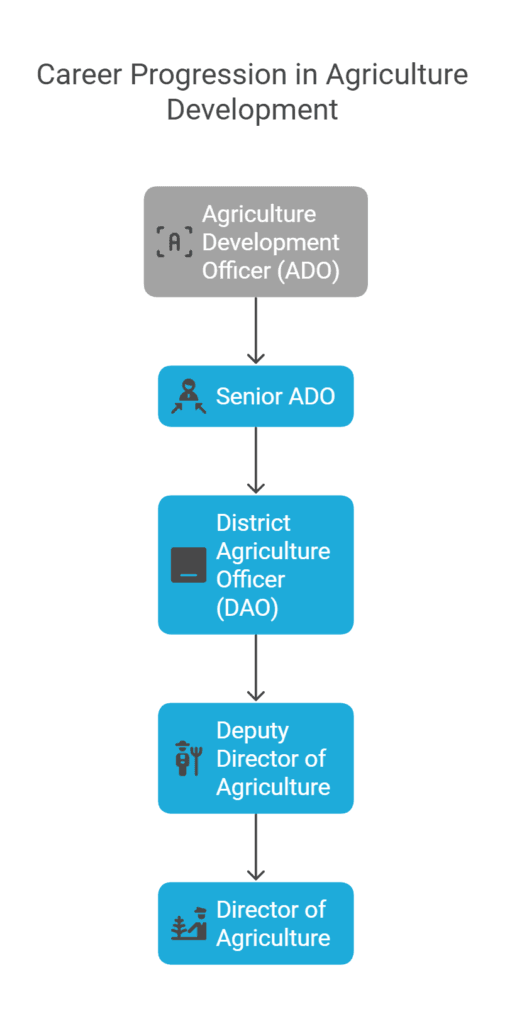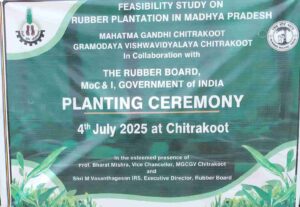
In 2025, 195 vacancies have been released for the APSC Agriculture Development Officer (ADO) exam, making it a prestigious opportunity. I am also an agriculture student and want to share the challenges and tips I have gathered while talking to last year’s selected students.
There have been some major updates in the APSC ADO syllabus 2025 for the exam, and you must focus on the latest exam patterns and important topics. According to my research, the difficulty level of the exam is getting a little tougher every year, so the importance of strategic preparation has increased. By understanding the APSC Agriculture Development Officer syllabus 2025, this blog will try to give you the same strategies that the top candidates adopted.
This blog will not only give you exam details but also real-life preparation experiences, exam patterns, the latest salary, and actionable tips, which can be the key to success in the APSC ADO exam 2025.
📢 APSC ADO Notification 2025 Out! For 195 Post and Important Dates
The Assam Public Service Commission (APSC) released the notification for Agriculture Development Officer (ADO) 2025 recruitment on 13 March. This is a prestigious government job for agriculture graduates that provides an opportunity to develop the agriculture sector of Assam.
If you have a completed B.Sc. in Agriculture and are looking for a government job, then this can be the best career option for you. I am sharing here the strategies and insights that I have collected from last year’s toppers, which will boost your preparation.
📜 APSC ADO 2025 Notification: Key Highlights
📜 APSC ADO Exam Pattern 2025
If you want to crack the Assam Agriculture Development Officer (ADO) exam, then just studying the syllabus or pattern is not enough. I talked to the candidates who cracked this exam, and the insights I got from their experience can be a game-changer for you! 🚀
🏆 Stage 1: Written Exam (Most Crucial Step!)
According to a selected candidate, “The level of the agriculture paper was unexpected. The basics should be strong. Memorization alone will not suffice!”
✔ Marking Scheme: For every correct answer, you will get +2 marks.
✔ Negative Marking: As per last year’s aspirants, there might be negative markings for wrong answers, so be careful!
🎤 Stage 2: Interview—The Game Changer!
“Everyone can crack the paper, but confidence and clarity matter in the interview.” – Ado 2024 Selected student
✔ Most Common Interview Question (As per Past Candidates): “What are the biggest challenges of agriculture in Assam, and how will you solve them?”
✔ Pro Tip: Practice mock interviews and read agriculture-related government policies thoroughly.
APSC ADO Syllabus 2025: Subject-Wise Topics & Smart Study Plan!
I’ll guide you through the APSC ADO syllabus 2025. syllabus in a way that reflects the experiences of those who’ve been through it, sharing tips on how to approach each section effectively. Whether you’re starting from scratch or refining your preparation strategy, this breakdown will give you the clarity you need to excel.
APSC ADO Syllabus 2025 For Paper-1
Here is the detailed APSC ADO Syllabus 2025 for Paper I: General Studies of the APSC Agriculture Development Officer (ADO) Exam, structured with topics and subtopics in separate tables:
1. Current Affairs
2. Indian Economy & Planning
3. Indian Constitution
4. Indian Geography
4. Indian Geography
5. Indian Polity and Governance
6. General Knowledge
7.General Mental Ability
APSC ADO Syllabus 2025 for Paper-2 (Agriculture)
Paper 2 is much more important than Paper 1, as this section contains 100 questions in the exam, which is of 200 marks. Though you should focus more on this paper, let me tell you about the topics related to this section that I have been asked about in previous years.
APSC ADO Syllabus For Agriculture Exam
1. Agronomy
2. Soil Science & Agricultural Chemistry
3. Crop Production
4. Plant Pathology
5. Entomology
6. Agricultural Extension
7. Agricultural Economics
8. Horticulture
9. Agricultural General Knowledge
How to Crack the Agriculture Section in APSC ADO? (Insights from Selected Candidates!)
The agriculture section of APSC ADO seems tough, but the students who got selected followed a smart approach. Here is the best strategy from their experience:
✅ Understand the syllabus deeply: Just learning by heart will not work; make the concepts clear. Focus more on Agronomy, Soil Science, Horticulture, Plant Pathology, and Entomology.
✅ Practice PYQs and mocks: 80% of the selected students said that previous years’ questions and test series were the secret of their success.
✅ Read standard books; do not follow multiple sources: Toppers have recommended Reddy & Reddy (Agronomy), D.K. Das (Soil Science), P.D. Sharma (Plant Pathology), and B.D. Singh (Genetics).
✅ Make short notes and revise: This will come in handy a day before the exam. Mnemonics and diagrams make memorizing easier.
✅ Follow a smart strategy during exam time: attempt easy questions first, and look at the doubtful ones at the end. Don’t waste time.
💡 Selected Candidate’s Advice: “I practiced PYQs for 10 years and studied only from 4-5 books. With smart revision and test series, I cracked the paper easily!”
APSC ADO Eligibility 2025: Are You Eligible to Apply? Check Now!
If you want to apply for Assam Agriculture Development Officer (ADO) 2025, then first of all, it is important to check the eligibility criteria. Understanding educational qualifications, age limits, and other important requirements is crucial for you.
📖 Best Books for APSC ADO Preparation | Toppers' Recommendations!
If you are preparing for the APSC Agriculture Development Officer (ADO) 2025 exam, then the selection of the right books is the first step to success. I spoke to last year’s selected candidates, and I am sharing here the books they recommended.
🔥 Why Choosing the Right Books is Important?
➤ It is important to cover the syllabus accurately.
➤ There are many books available in the market, but not all are relevant.
➤ Toppers suggest that you use a combination of standard books and state-specific resources.
ADO Books For General Studies & Assam GK subject
ADO Books For Agriculture (Core Subject) Subject
✨ Toppers' Tips for Using These Books
✅ Gain command over static subjects: First, clear the concepts from core books, then solve mock tests.
✅ Give priority to Assam-specific GK: Do not ignore Assam GK and agriculture-related state policies.
✅ Make Handwritten Notes: Writing concise notes is helpful for revision.
✅ Solve Mock Tests & PYQs: You will get an idea of the exam pattern from the previous year’s papers.
✅ Read Current Affairs Daily: Follow The Hindu, PIB and Assam Tribune daily.
APSC ADO Toppers' Strategy: How They Cracked the Exam in 3 Months!
If you have only 3 months and want to crack APSC ADO, then this strategy can be a game-changer for you! I talked to last year’s selected candidates, and they shared proven tips & techniques, which I am writing about here.
📅 Month 1: Strong Foundation & Core Subjects
✅ Understand the syllabus well—first of all, read the syllabus of General Studies & Agriculture thoroughly.
✅ Build concepts from NCERTs + standard books—use the books recommended by toppers for every subject.
✅ Make handwritten notes—write a short & crisp summary of whatever new you learn.
✅ Read daily current affairs—follow Assam Tribune, The Hindu, and PIB reports.
📝 Example:
🔹 Agronomy—Crops, soil management, climate impact
🔹 Soil Science—Soil properties, fertilizers, pH balance
🔹 General Studies—Polity, Geography, Economy (State + National)
📅 Month 2: Answer Writing & PYQs Practice
✅ Solve Mock Tests and Previous Year Papers—Toppers believe that 70% of the questions are based on a similar pattern, so PYQs are compulsory!
✅ Make One-Pager Notes—Write a one-page summary of each subject for last-minute revision.
✅ Focus on State-Specific Knowledge—Give extra time to Assam’s agriculture policies, schemes, and geography.
✅ Identify Weak Areas—Strengthen the topics that seem tough through revision and test series.
📝 Example:
🔹 Entomology—Major crop pests & control measures
🔹 Agricultural Economics—Farm subsidies, rural finance
🔹 Horticulture—Fruits & vegetable production techniques
📅 Month 3: Full-Length Mocks & Smart Revision
✅ Give 1 full-length mock test daily—time management and accuracy will improve.
✅ Do Daily Revision Using One-Page Notes—Toppers recommend revising only 15 days before the exam!
✅ Maintain Confidence—To avoid being overloaded, focus on smart strategy and limited resources.
📝 Example:
🔹 Plant Pathology—Crop diseases & integrated management
🔹 Extension Education—Rural development, communication strategies
🔹 Farming Systems—Organic, precision, mixed farming
✨ Toppers’ Golden Tips for Last 15 Days
✅ Avoid New Books—Just revise notes & previously studied material.
✅ Focus on state GK & current affairs—extra time is given to Assam-specific agriculture schemes & government initiatives.
✅ Do Meditation & Exercise—To remain stress-free, do meditation for 15 minutes daily.
💰 APSC Agriculture Development Officer Salary 2025: How Much Does an Agriculture Officer Earn?
If you are thinking of becoming an APSC Agriculture Development Officer (ADO), then first of all, it is important to know about the salary and perks. Because motivation will come only when you know what reward you will get for your hard work!
🏦 APSC ADO Salary Structure 2025
Perks & Benefits of an APSC ADO Officer
✅ Job Security – The biggest advantage of a government job!
✅ Regular Salary Hikes – Salary is revised according to the Pay Commission.
✅ Pension & Gratuity – Retired life also secured!
✅ Medical Benefits – Free medical treatment for self & family.
✅ Allowances & Perks – Travel, housing, and special allowances.
Agriculture Development Officer: Career Growth & Promotions
🔎 Final Thoughts on APSC ADO Syllabus 2025
If you want to crack the APSC ADO 2025 exam, then the most important thing is the right strategy and a deep understanding of the APSC ADO syllabus 2025. The APSC ADO Syllabus 2025 is quite vast, but if you do smart planning, right books, and do consistent revision, then selection can be confirmed!
In this exam, it is important to have a strong command of general studies along with agriculture subjects. If we look at the strategy of previous years’ toppers, they covered every topic of the syllabus systematically, gave mock tests, and improved answer writing—all these factors are important for success!
📌 So, now just make a solid study plan, and start your preparation with hard work and dedication—because you too can be the next topper of APSC ADO!
People also ask-
The APSC ADO Official Notification is an official document issued by the Assam Public Service Commission (APSC) for the recruitment details of the Agriculture Development Officer (ADO). It contains all the important details like vacancies, eligibility, exam pattern, syllabus, application process and salary. Candidates can download it from the official website of APSC (apsc.nic.in).
Steps to Apply for APSC ADO:
1️⃣ Visit the official website—go to apsc.nic.in.
2️⃣ Check the latest notification—see the APSC ADO notification in the “Recruitment Advertisements” section.
3️⃣ Online Registration—New users have to register by filling in their basic details.
4️⃣ Fill out the application form—upload personal and educational details and documents.
5️⃣ Pay the application fee—pay the fee through online mode.
6️⃣ Final Submission—review the form, submit it and save the printout for future reference.
Yes, as per APSC ADO Notification 2025, the Assam Public Service Commission (APSC) will fill 195 vacant positions in the Agriculture Department. These vacancies are for the Agriculture Development Officer (ADO) post. Candidates have to fulfil the eligibility criteria and go through the selection process. Check the official website of APSC for official updates!
Other Important Exam Update 2025
IBPS AFO previous year cutoff from 2021 to 2024. Get category-wise Prelims, Mains & Final cutoff
Introduction—IBPS AFO Previous Year Cutoff If you’re preparing for the...
Read MoreMGCGV Becomes First University in Madhya Pradesh to Start Rubber Plantation in Collaboration with Rubber Board of India
First time rubber plantation in Madhya Pradesh In a historic...
Read MoreTPSC Agriculture Officer Exam Syllabus 2025 Get a detailed breakdown of the syllabus with exam pattern
TPSC Agriculture Officer Exam Syllabus 2025 and other important updates...
Read MoreTFRI Technical Assistant exam 2025! Get a detailed breakdown of the official syllabus, exam pattern, eligibility,
TFRI Technical Assistant Syllabus 2025: Your Roadmap to Success! Are...
Read MoreReference -
APSC Official Website – For the latest notifications, eligibility, and other details on the ADO exam.
APSC Official Website
Assam Agricultural University – For syllabus and agricultural studies information related to the ADO exam.
ICAR (Indian Council of Agricultural Research) – A primary reference for agricultural education.
Embibe – For APSC ADO mock tests and previous year’s papers.
Gradeup – Provides APSC ADO previous year papers and practice questions.
NCERT Books Online – For foundational knowledge in general studies subjects.
The Hindu – Reliable source for current affairs in the General Studies section.
Economic Survey of India – For Indian economy-related questions in the General Studies section.
Agricultural Census Reports – For statistical data useful in the Agriculture section.

